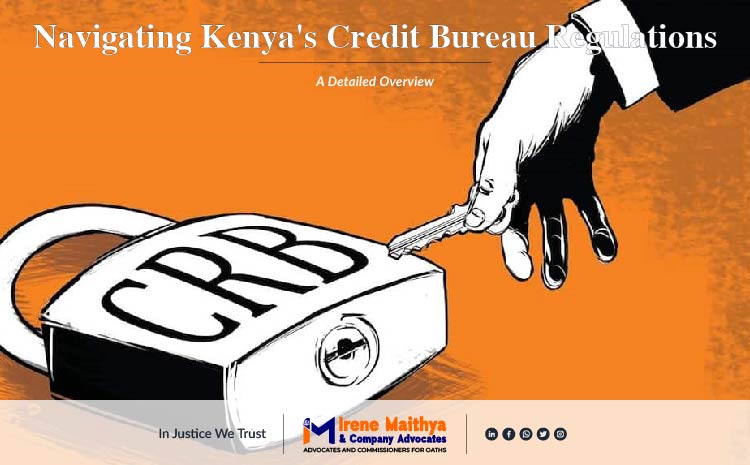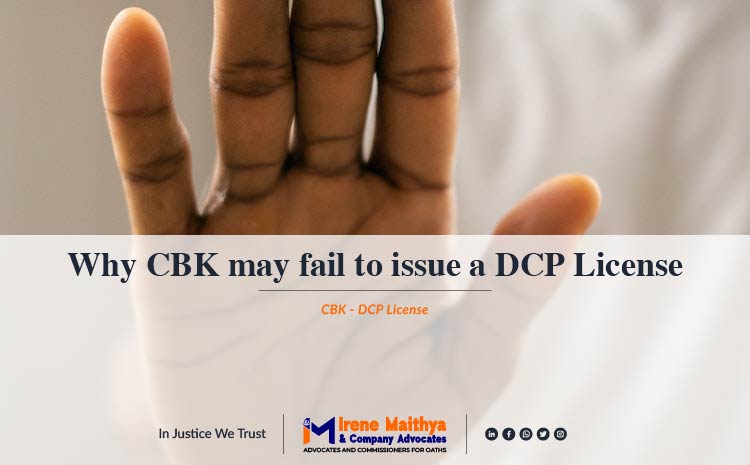
The credit bureau industry in Kenya plays a pivotal role in the financial sector by facilitating responsible lending and helping individuals and businesses access credit. If you're considering entering this sector by starting your own credit bureau, it's essential to understand the key requirements and steps involved. In this blog post, we'll guide you through the process of establishing a credit bureau in Kenya.
1. Requlatory Compliance:
The first and foremost requirement for starting a credit bureau in Kenya is regulatory compliance. The industry is governed by the Central Bank of Kenya, and you must adhere to the Banking Act (Cap. 488) and related regulations. For additional information regarding this Act, click here.
Here are the regulatory steps to consider:
Licensing: Obtain a license from the Central Bank of Kenya to operate as a credit bureau. This involves a rigorous application process and demonstrating that your bureau will operate in line with the regulatory framework.
Legal Structure: Establish a legal entity for your credit bureau, such as a limited company, and ensure it complies with Kenyan corporate law.
Shareholding: Ensure that your credit bureau complies with regulatory requirements concerning the ownership structure, including shareholding limits and qualifications of shareholders.
2. Capital Requirements:
To start a credit bureau in Kenya, you need to meet specific capital requirements set by the Central Bank. These requirements may vary, so it's crucial to check the latest guidelines and consult with the regulatory authority on their website by visiting https://www.centralbank.go.ke/
3. Infrastructure and Technology:
Invest in the necessary infrastructure and technology to collect, store, and manage credit data securely. Your systems must comply with data protection and security standards to safeguard sensitive customer information.
4. Data Collection and Reporting:
Develop robust data collection and reporting processes. Establish relationships with various financial institutions, including banks, microfinance institutions, and SACCOs, to access credit information. Your bureau's ability to gather accurate and comprehensive data is essential for its credibility.
5. Credit Reporting Standards:
Ensure that your credit bureau adheres to mandatory standards for data collection, storage, and use. These standards are designed to protect consumers' rights and ensure data accuracy.
6. Team and Expertise:
Hire a skilled and knowledgeable team with expertise in credit reporting, data analysis, and regulatory compliance. Having the right talent is crucial for the successful operation of your credit bureau.
7. Data Security and Privacy:
Implement strict data security and privacy measures to safeguard customer information. Compliance with data protection regulations is vital to maintaining trust with both consumers and financial institutions.
8. Marketing and Partnerships:
Develop a marketing strategy to promote your credit bureau's services to financial institutions, businesses, and consumers. Establish partnerships with banks and other entities to expand your data sources.
Conclusion
Starting a credit bureau in Kenya is a complex but rewarding endeavor. It requires careful planning, regulatory compliance, and a commitment to data accuracy and security. By meeting these requirements and working closely with the Central Bank of Kenya, you can establish a credit bureau that contributes positively to the financial landscape and helps consumers and businesses access credit responsibly. Remember, your credit bureau can play a crucial role in shaping Kenya's financial future.








Leave a comment